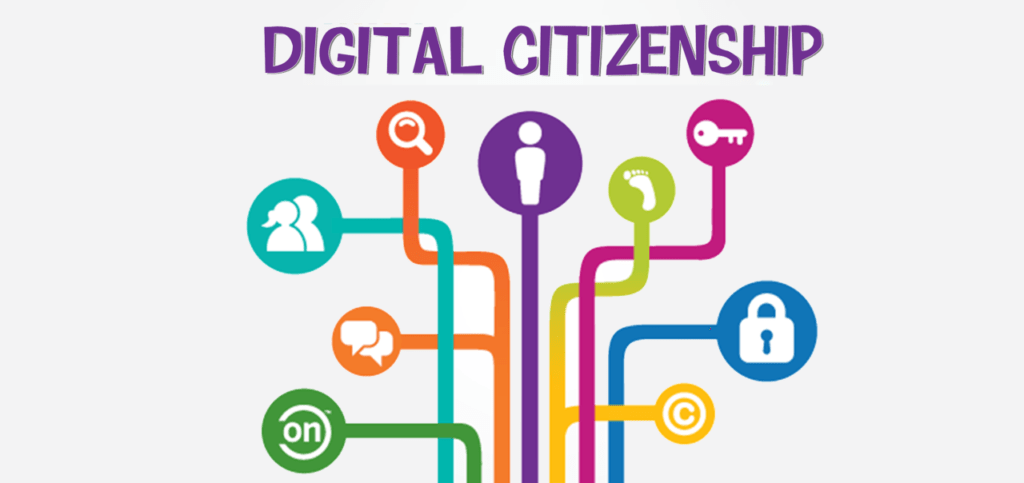Digital citizenship and digital literacy are essential concepts in our increasingly digital world. They both play vital roles in helping individuals navigate the digital landscape responsibly, ethically, and effectively.
Digital Citizenship:
Digital citizenship refers to the responsible and ethical use of technology, particularly the Internet and social media. It encompasses a set of norms, behaviors, and attitudes that individuals should uphold when interacting online. Key aspects of digital citizenship include:

Online Etiquette (Netiquette): Being respectful, courteous, and considerate when communicating with others online, whether through emails, social media, or other digital platforms.
Privacy and Security: Understanding the importance of safeguarding personal information, using strong passwords, and being cautious about sharing sensitive data online.
Digital Footprint: Recognizing that everything one does online leaves a digital footprint. This includes the shared content, comments, also the impact these actions can have on one’s reputation.
Cyberbullying Awareness: Being aware of the harmful effects of cyberbullying also taking steps to prevent or report it.
Critical Thinking: Developing the ability to evaluate the credibility of online sources and content, discerning between reliable and unreliable information.
Digital Literacy:
Digital literacy is the ability to find, evaluate, use, and create digital information effectively. It encompasses technical skills, critical thinking, also problem-solving abilities related to digital technology. Key components of digital literacy include:
Basic Computer Skills: Proficiency in using digital devices, software, and applications, including word processing, email, and web browsing.
Information Literacy: The ability to search for and evaluate information online, discerning credible sources from unreliable ones.
Media Literacy: Understanding how media and digital content are created, consumed, and interpreted. This includes recognizing media bias and understanding the persuasive techniques used in digital media.
Cybersecurity Awareness: Knowledge of online security practices, such as recognizing phishing attempts and protecting personal information from cyber threats.
Digital Content Creation: The ability to create and share digital content, whether it’s writing a blog, producing videos, or designing websites.
Conclusion
In today’s digital age, being a responsible digital citizen and possessing digital literacy skills are essential for personal growth, education, career success, and social interaction.
These skills not only enable individuals to make the most of the opportunities presented by technology but also empower them to protect themselves and others from the potential risks and challenges of the digital world. 온라인카지노사이트
Usually I do not read article on blogs, however, I would like to say that this write-up very compelled me to take a look at and do it! Your writing style has been amazed me. Thank you, very nice article.
hello!,I really like your writing so a lot! share we keep up a correspondence extra approximately your post on AOL? I need a specialist in this house to unravel my problem. May be that is you! Looking ahead to see you.